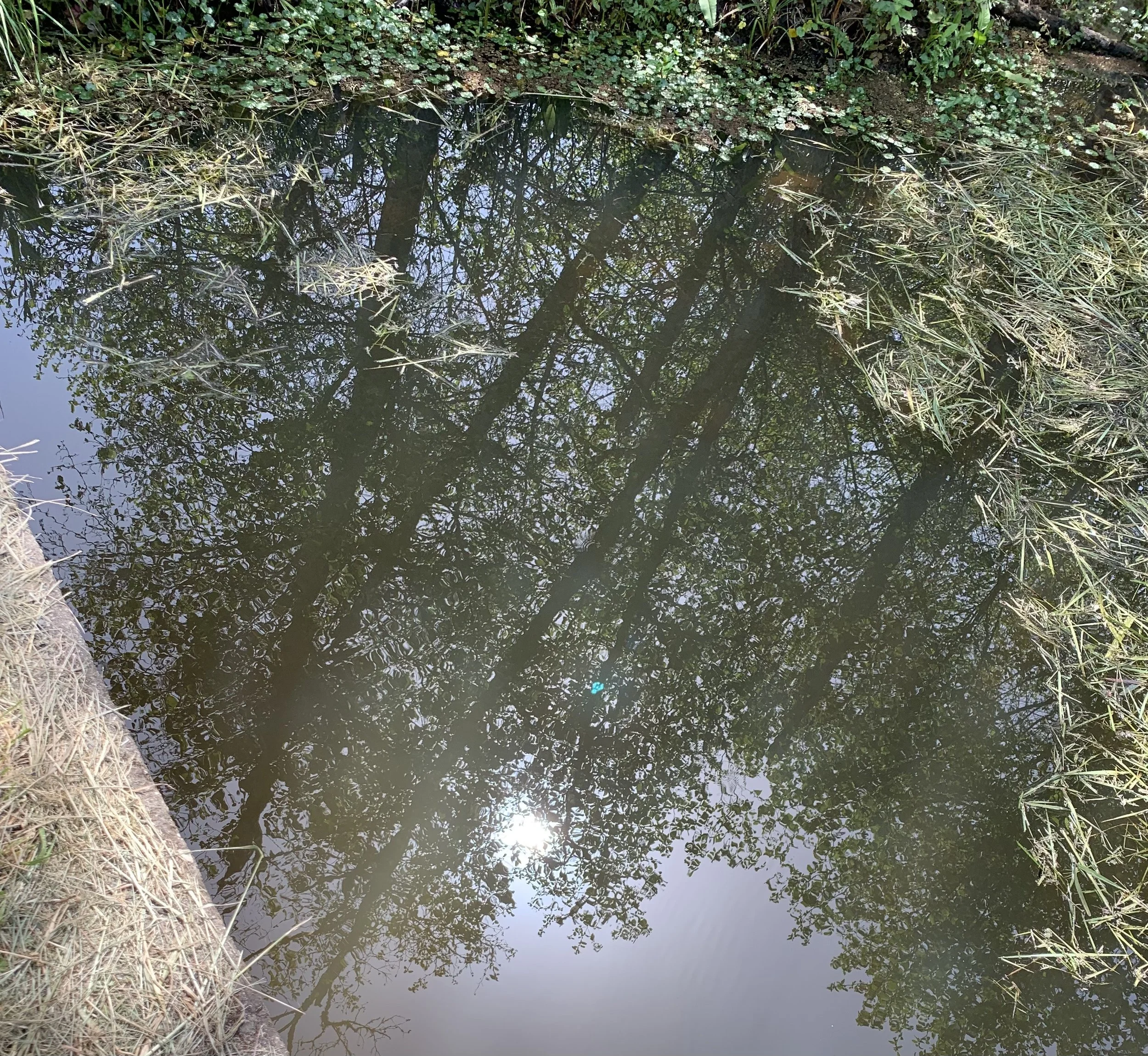Sixteen. What does it bring up for you? If you took an elevator to your sixteenth year, what scene you would walk in on?
My elevator brings me to an early morning in November 1985, a room tinged with kerosene, sweat, and mildew. A girl and a baby lie on a bloodied bed. The girl is naked from the waist down, the baby still attached. This is liminal moment, the quietness between the drama of birth and the eventual arrival of paramedics. There is no way to escape. I am hollow inside.
My mother’s elevator travels to an early summer evening in 1966. The doors open to an emergency room, the nose-pricking scent of charred flesh cut with colloidal silver and antiseptic surrounding her father. He lies on a bed, his face green, his ears melted away. Fighting the urge to flee, she freezes in place.
These scenes, moments of stillness after trauma, allude to larger stories embedded in complex lives. I suspect the two events are linked, that my mother’s trauma at sixteen was fuel for my own. It didn’t start with my mother, of course (my focus here is matrilineal). The experiences of my adoptive and biological grandparents filter through my mother to me. Soaked in experiences of loss, abandonment, and the stark knowledge that safety is not guaranteed, my upbringing has informed my relationships. It can show in the ways I express love, trust, and affection, in how I interpret others’ intentions and emotions.
We cannot fully escape the pain of those who came before us – and we sometimes benefit from their good fortune and joyful, empathetic ways. Experiences, emotions, and patterns of coping get transmitted across generations. They emerge unconsciously in how we relate to others, expect to be treated, and in the faith we have in the world. Often these patterns assert themselves without our awareness. They bloom to life unexpectedly, appearing in a shifting mood, an intense reaction, in some of the choices we make to kick free of familiar ties.
The trickiest way my past expresses itself within me is in my often unconscious, unprocessed responses to my child. The boy is 16 himself now, almost through that delicate, liminal year. The neglected 16-year-old in me, wounded and alone, sometimes emerges in our interactions. She’s fiery and small and full of shame. This girl feels shut out, unimportant, excluded. She carries the weight of neglect, the knowledge of her intrinsic badness, like a chunk of anthracite suspended in her hollow chest. She knows that love is not guaranteed, that she will be abandoned eventually, that she doesn’t matter. It takes self-awareness and inward-facing love to soothe her while continuing to parent like an adult. Sometimes I don’t succeed.
The stillbirth I had at sixteen was embedded in a series of circumstances. The paramedics eventually took me to the hospital. My baby was cleaned up and briefly placed in my arms. I was back to school in a week, with most of my friends and peers none the wiser. I returned to my unchaperoned living situation, returned to the room in the cottage where it all happened.
My grandfather survived the industrial fire that burned over 90% of his body. He lost a foot and his hearing, spent nine months in the hospital and nine with an at-home nurse. My mother returned to school in the fall, did the things that teenagers do, went on with life as usual.
These events reverberate. They echo. I write them down to capture them, to subdue them, to fully embed them in the past.
The idea of taking an elevator to a particular age was as a prompt in a recent poetry retreat my mother attended. One of the first images that came to her was seeing her father in the hospital immediately after his accident. Though I grew up knowing the general story, hearing about her reaction in that moment brought home the horror and pain of it all. My own story of sixteen, something I’ve written about extensively and yet still find difficult to engage with emotionally, came to mind. What does a kid do when the unthinkable has happened? How does it affect them going forward? How does it show up in their parenting later on? And how can the intergenerational transmission of trauma be interrupted?
These topics are on my mind, both as they apply to me and to others. I’m still working through them, so think of this as a draft.




